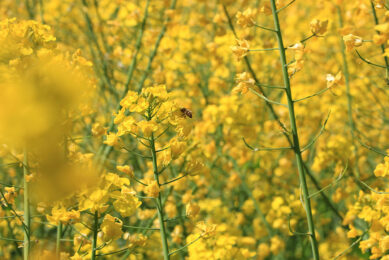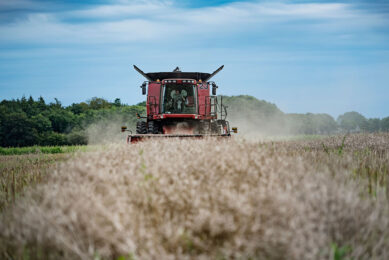Complex canola genome sequenced

An International consortium of more than 30 research institutes, coordinated by scientists at INRA and CEA-Genoscope and associating CNRS and University of Evry, have sequenced the complex genome of rapeseed.
Rapeseed (canola), the most important oilseed crop in Europe, Canada, and Australia. Rapeseed is considered a good replacement, if only partially, for soybean meal in most animal diets.
The team managed to sequence the reference genome of canola, along with genomes of a collection of varieties representing the diversity of the species. A reference genome is the assembled and ordered sequences of all genes, which will be invaluable for future research on the genetics of the species. “The main difficulty for oilseed rape has been to differentiate its different sub-genomes. This has been achieved by the development of an original sequencing strategy, bioinformatics tools and the analysis of duplicated gene expression and their regulation,” says Boulos Chalhoub who coordinated the research and federated research efforts within the International consortium.
It is the first time that a recent polyploid genome has been completely sequenced and compared to those of its relative parental species, the Mediterranean cabbage and Asian turnip (for which INRA contributed to the recent deciphering of their genomes).
Rapeseed is a fairly recent species with high potential for genetic improvement. “The sequencing of the genome is a unique resource in the world and offers great opportunities to identify genes of agronomic interest and rapidly use them in breeding programmes,” predicts Chalhoub. It would therefore be possible to improve the content and composition of oil, resistance to pathogens, tolerance to cold, yield, or even nitrogen use efficiency.
This work is published in Science on 22 August 2014.
[Source: INRA]











